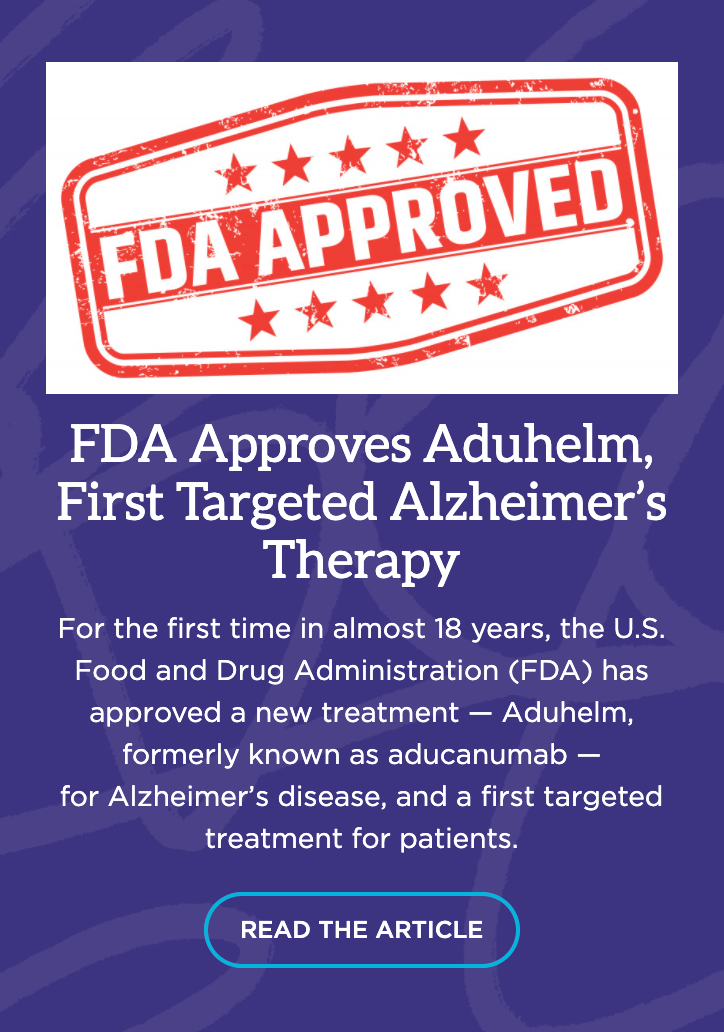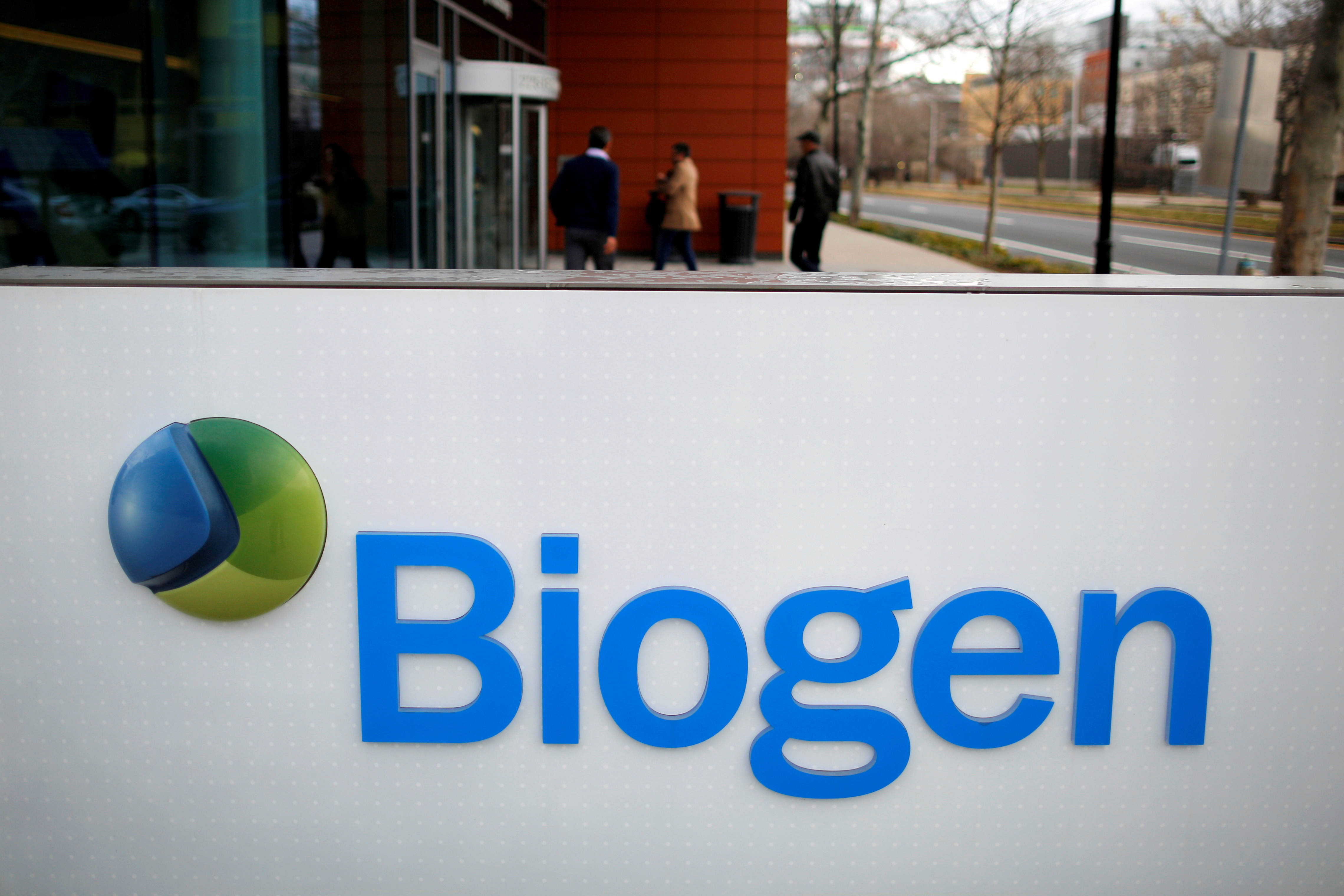The Desperate Search to Defeat Alzheimer's
"This is good news for patients with Alzheimer's disease. We've not had a disease modifying therapy approved, ever.""This is not a cure. It's hoped that this will slow the progression of the disease.""I think this is a big day, but we can't over-promise."Dr.Ronald Petersen, Alzheimer's disease expert, Mayo Clinic"Although the Aduhelm data are complicated with respect to its clinical benefits, FDA [U.S.Food and Drug Administration] has determined that there is substantial evidence that Aduhelm reduces amyloid beta plaques in the brain and that the reduction in these plaques is reasonably likely to predict important benefits to patients."U.S. Food and Drug Administration statement on new Alzheimer's disease therapy"I think they made the right decision. It makes the drug available to patients while requiring the company to do more research to prove its benefit.""I think it's a win-win for all."Dr.Howard Fillit, chief science officer, Alzheimer's Drug Discovery Foundation"[The FDA collaborated with Biogen to rush a] lucrative, unproven treatment [to market] despite the conclusion of an independent panel of experts convened by the agency in November that there was not sufficient evidence that the drug was effective."Public Citizen, consumer watchdog
 |
| Cindy Leonard, a longtime Mayo Clinic nurse and nurse educator, was diagnosed with young-onset Alzheimer's disease in 2018. It's an uncommon form of dementia that affects those under 65. |
 |
Controversy has arisen over the introduction of a long-awaited treatment for Alzheimer's disease, when the U.S. FDA approved Biogen Inc.'s new drug aducanumab. It is the first treatment devised with the intention of approaching Alzheimer's from the perspective of treating the disease through removal of the sticky deposits of protein known as amyloid beta, building up in the brain of Alzheimer's patients and slowly and inevitably causing loss of critical brain function and finally, death.
The aim of the drug isn't questioned as a sound way to approach the vexing and evasive clues to stopping Alzheimer's gradual and deadly effect, but rather the scientific controversy that has arisen over whether the drug is effective, given the available clinical evidence. On its website the Food and Drug Administration noted that clinical trials for the treatment indicated reduction in the plaques with the expectation that this would lead to a slower patient decline.
Patient advocates and some within the medical specialty of neurology have been quick to recognize the Biogen drug to be sold as Aduhelm as a long-awaited therapy of hope for the future of managing and eventually curing Alzheimer's disease. Eager to recognize the new therapy as an effectively useful option available to patients with the lethal malady, while others in the medical profession feel that the clinical trial results proved to be inconsistent with more reliable proof required.
While current Alzheimer's treatment is intended to ease Alzheimer's symptoms, the Biogen drug shoots for the underlying cause of the disease, aiming to slow its progression. Approval was given by the FDA with the proviso that Biogen will be required to conduct a post-approval trial in the interests of verifying Adulhelm's clinical benefit. Should it not be able to, it risks having the drug pulled from the market.
 |
| A sign marks a Biogen facility in Cambridge, Massachusetts, U.S. REUTERS/Brian Snyder |
"For years, regulators have been looking for proof that new Alzheimer's drugs slow the inexorable decline of cognitive or daily functioning. That proof has been hard to come by, with numerous clinical trials failing or producing murky results. Biogen’s studies were no less confusing. One trial failed to show effectiveness overall, and in the other, the drug slowed patients' decline by a very modest 22%, when the drug was used at high doses.""But in an unexpected shift, the FDA decided proof that the drug slowed cognitive decline could wait. It found that aducanumab's ability to remove a protein called amyloid, thought to trigger a cascade of events eventually leading to brain-cell death, was sufficient for an accelerated approval, contingent on results from a future study."Bloomberg News
Labels: Aduhelm, Alzheimer's Disease, Biogen, Research. Clinical Trials, Treatment, U.S. F.D.A.

0 Comments:
Post a Comment
<< Home